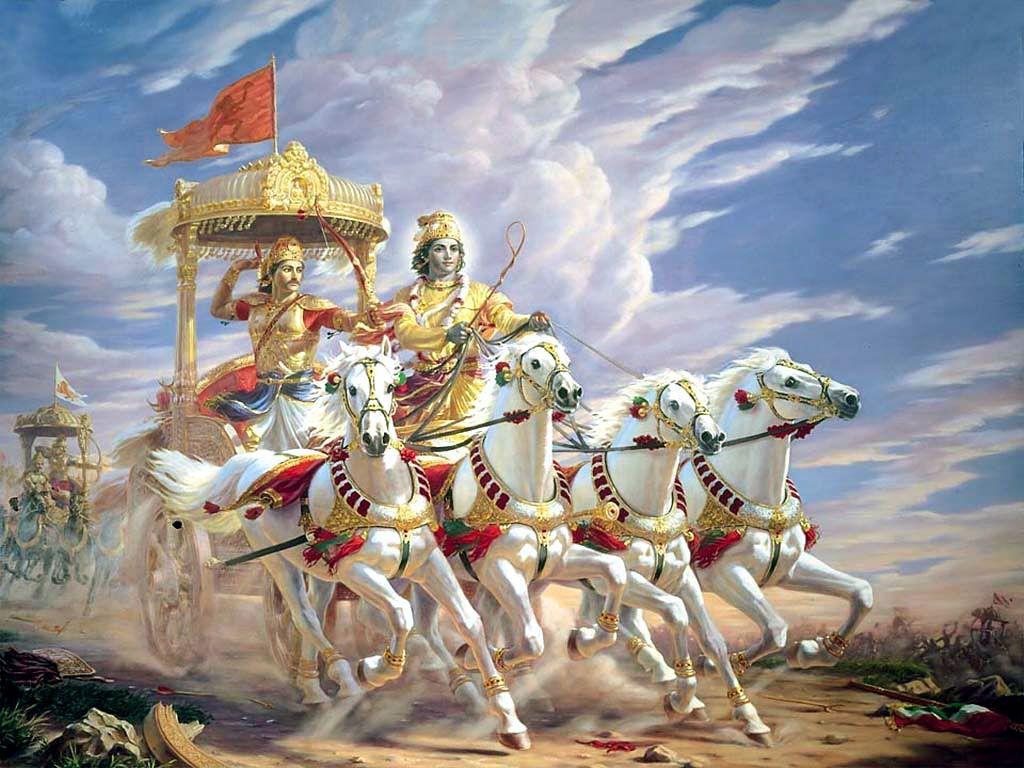The Mahabharat, one of India’s most revered epics, intricately weaves tales of devotion that continue to inspire readers worldwide. This article delves into the profound expressions of devotion depicted in Mahabharat highlighting key characters and their unwavering faith.
Understanding Devotion in Mahabharat
Devotion, or ‘bhakti,’ serves as a central theme in Mahabharat, influencing the actions and destinies of its characters. The epic portrays devotion not merely as ritualistic worship but as deep, unwavering faith and loyalty towards righteousness, mentors, and the divine.
Key Figures Exemplifying Devotion
- Draupadi’s Unwavering FaithDraupadi, the wife of the Pandavas, epitomizes steadfast devotion. In a dire moment during the Kauravas’ attempt to disrobe her, she calls upon Lord Krishna with complete surrender. Her faith compels Krishna to intervene miraculously, protecting her honor. This incident underscores the power of absolute devotion and trust in divine intervention.
- Bhishma’s Devotion to VowsBhishma, known for his vow of celibacy, showcases devotion through his commitment to duty and promises. His life reflects the sacrifices made in adherence to one’s principles, even when faced with personal loss. Bhishma’s unwavering dedication to his vows highlights the virtue of selfless devotion to one’s word and duty. The Spiritual Scientist.
- Karna’s LoyaltyKarna’s life is marked by his unwavering loyalty to Duryodhana, despite knowing the righteousness of the Pandavas’ cause. His devotion to friendship and gratitude towards Duryodhana, who accepted him when others did not, illustrates the complexities of loyalty and the moral dilemmas it can present.
- Vidura’s Commitment to DharmaVidura, the wise counselor of the Kuru dynasty, embodies devotion to dharma (righteousness). His unwavering commitment to truth and justice, even when it meant opposing his own family, highlights the importance of moral integrity and devotion to ethical principles.
- Gandhari’s Sacrificial DevotionGandhari, the queen of Hastinapura, blindfolded herself for life to share her husband Dhritarashtra’s blindness. This act symbolizes her deep devotion and sacrifice, embodying the virtues of empathy and loyalty in marital relationships.
Lessons on Devotion from the Mahabharat
The Mahabharat imparts several lessons on devotion:
- Selfless Service: True devotion often involves selfless actions performed without expectation of reward.
- Moral Integrity: Upholding righteousness, even in challenging circumstances, is a form of devotion.
- Unwavering Faith: Complete trust in the divine can lead to miraculous interventions and protection.
- Sacrifice: Devotion may require personal sacrifices, reflecting the depth of one’s commitment.
Comparison of Devotional Expressions in the Mahabharat
The following chart compares the different expressions of devotion among key characters in the Mahabharata:
| Character | Expression of Devotion | Key Actions | Lessons Imparted |
|---|---|---|---|
| Draupadi | Devotion to the Divine | Surrender to Krishna during humiliation | Highlights the power of unwavering faith in divine intervention. |
| Bhishma | Devotion to Vows | Lifelong celibacy and loyalty to the throne | Emphasizes the importance of commitment to one’s promises and duties. |
| Karna | Loyalty to Friendship | Support for Duryodhana despite moral dilemmas | Illustrates the complexities of loyalty and the consequences of misguided devotion. |
| Vidura | Commitment to Dharma | Counsel against adharma, even opposing family | Demonstrates the significance of moral integrity and righteousness. |
| Gandhari | Sacrificial Devotion | Blindfolding herself to share her husband’s blindness | Symbolizes empathy, sacrifice, and loyalty in relationships. |
Conclusion
The Mahabharat offers profound insights into the nature of devotion, illustrating how unwavering faith, loyalty, and commitment to righteousness can shape destinies. The stories of its characters serve as timeless lessons, inspiring individuals to embody the virtues of devotion in their own lives.







